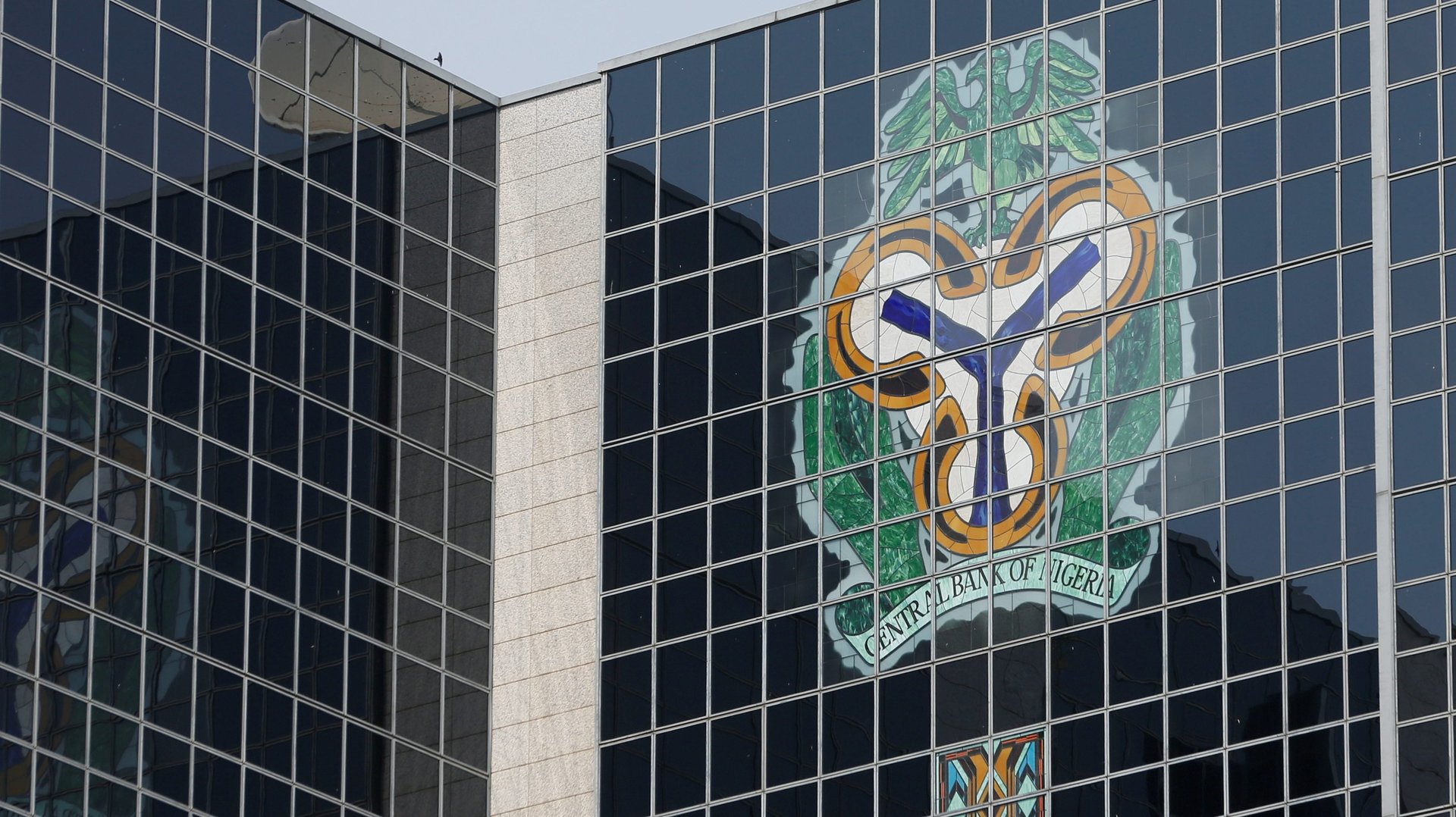Nigeria wants banks, startups, and retailers to share customer data
In a draft document that became public on May 18, the Central Bank of Nigeria (CBN) proposed guidelines that would usher in an ‘open banking‘ era in the country, a key step in creating a standard for how companies exchange digital financial data belonging to consumers.


In a draft document that became public on May 18, the Central Bank of Nigeria (CBN) proposed guidelines that would usher in an ‘open banking‘ era in the country, a key step in creating a standard for how companies exchange digital financial data belonging to consumers.
Most notably adopted in the UK, open banking is the idea that the easy exchange of consumer data between financial and non-financial companies, with consumers’ consent, is necessary to create more useful and competitive consumer services. Data is exchanged through application programming interfaces (APIs)—software programs that act as digital plugs for requesting and transferring data.
More services would invite more people into the financial system, growing the economy and quality of life. For example, retailers like Jumia that meet regulatory requirements can connect to a bank’s customer data (at an agreed fee) to get information that could inform buy-now-pay-later decisions or new services. Same applies for banks seeking retailer customers’ data.
UK banks started adopting open banking in 2018, giving up exclusive control over their customers’ data, and opening up the banking business to tech companies like Meta and Google. Similarly, Nigeria’s open banking ambition is to “drive competition and improve accessibility to banking and payments services,” per the draft document (pdf).
Fintech startups score a desired win
CBN’s proposal comes a year after the regulator first teased its intention to formalize open banking, by specifying four levels of data (pdf) that can be exchanged. The most risky and sensitive data concern customers’ income ratings and credit score.
The regulator’s push has been driven by fintech startups (and at least one major bank) eager to expand the financial services pie and solve obstacles that have stood in the way of collaboration.
“In 2015 when the fintech revolution began in earnest in Nigeria, it became apparent that banks weren’t that mature when it comes to APIs,” says Adedeji Olowe, founder of fintech startup Lendsqr and a founding member of Open Technology Foundation, a non-profit that has led open banking advocacy in Nigeria.

A key goal of the advocacy has been for banks, who have more customer financial data than anyone else, to have uniform APIs, the same way debit cards of any bank can be used on any ATM. That mission seemed to appeal to the CBN, which began engaging on the issue in 2019, Olowe says.
What comes next?
It is a concept that seems abstract because it involves businesses building connections to one another, but open banking centers individual consumers’ needs, including the needs of the 38 million Nigerian adults who have no formal access to financial services.
In theory, that’s how it should be. There’s the real life question of whether individuals will be reluctant to allow third party access to their data if they are not personally interested in exploring new financial services.
CBN’s draft emphasizes the primacy of consumer consent at crucial stages of data exchange, including when sharing with non-Nigerian companies. Companies requesting access must comply with the Nigeria Data Protection Regulation (modeled after Europe’s GDPR), among other data ethics requirements.
Industry stakeholders bothered by the requirements being onerous or insufficient will have time to give the CBN feedback before a final standard will be published. There is no timeline for that and it may take a while.
But the draft is “the second to the last step,” Olowe says, “the last being releasing the schedule of implementation. After that comes enforcement.”